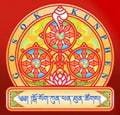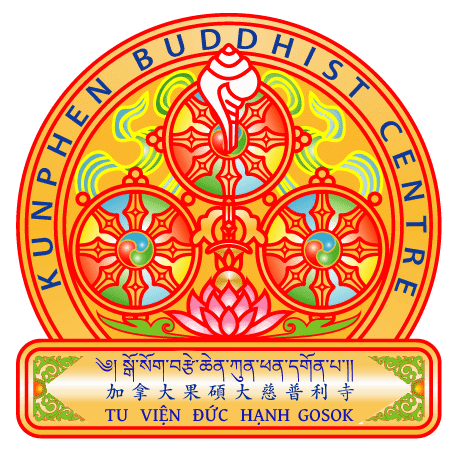Vyalipa, the « Courtesan’s Alchemist », was one of the 84 Indian Vajrayana Mahasiddhas….
貝利巴, »長生不老的大成就者 »,是古印度金剛乘八十四大成就者之一….
貝利巴是阿帕叉拉地方的一位富有婆羅門,他為了研製無死甘露,十三年間耗盡家財,未有進展,淪為乞丐,便憤而將製藥秘笈丟入恆河。
一天,貝利巴乞食行經羅瑪姬祥寺(Ramacandra)所在的城市,有個妓女到恆河洗澡時,巧遇貝利巴,便將自己所撿到書籍詢問婆羅門,貝利巴一見此書,正是以前所丟棄的秘笈,便告訴她以前煉製長生不老藥的失敗經過。於是妓女便資助貝利巴繼續實驗。
貝利巴依照相同的程序再練習一年,因為他不知道無死甘露的關鍵藥材在於紅色庵摩羅果,所以任何轉換的徵兆都沒出現。有一天,當那妓女在恆河畔洗澡的時候,有一朵自然生出的花黏在她的指頭上。當她拂去花朵時,一片花瓣掉入了煉藥的混合液中,突然,轉換的徵兆馬上就出現了。貝利巴就問那妓女放了什麼?但妓女卻說什麼都沒加進去。
妓女摻了一滴長生不死藥在貝利巴的食物給他吃。被貝利巴發現異樣,於是貝利巴說這是成功的徵兆。他和妓女與一匹馬都吃了靈藥,而得到長生不死的力量。但是貝利巴本性自私,想到一個不必將長生不老藥給別人的地方去。於是他先到天界,後到吉浪貝 (Kilampara)去,在一塊一哩高岩石頂端的樹下居住。
此時,尊聖的龍樹菩薩在證得了空中行走的成就之後,穿著一雙神奇的鞋子來到此地向貝利巴請求無死甘露配方,並以奇鞋一隻作為交換。之後龍樹菩薩在希利巴瓦塔圓滿了禪修後,為眾生福祉而努力,精進不懈。(維基百科)
Vyalipa was a very wealthy Brahmin. He was obsessed with immortality. He began to practice alchemy to discover the secret to eternal life. At much material expense, he bought a rare alchemical manual with all the needed ingredients listed. He prepared the elixir carefully. However, he was still lacking one ingredient, without which, the potion is useless. In fury and now penniless after 13 years of worthless pursue, he throw the manual into Mother Ganga. He became a wandering beggar.
One day, while begging, he met a courtesan and a conversation formed. She told him that she found a book while she was bathing in the river. When she showed the book to Vyalipa, he laughed uncontrollably as it was the very book he threw away. He told her of his tale. The courtesan, desperate to preserve her beauty, begged the yogin to continue his research. She offered him 30 pounds of gold as an incentive. He accepted her offer and began formulating the potion once again. However, he still lacked the one crucial ingredient, the red myrobalan.
Another miraculous event took place again while the courtesan bathed in Mother Ganga. A beautiful red flower floating down the river wrapped itself around one of her fingers. She didn’t notice it until she went hopefully to check Vyalipa’s progress. When she shook the flower off her finger, a drop of nectar fell into the potion and the air was filled with miraculous signs – a wheel of 8 auspicious symbols spinning clockwise appeared in the sky over their heads.
Out of greed, they both agreed to never tell anyone of the potion. After conducting tests on the potion’s safety, they toasted each other’s eternal life and drank the potion. Instantly they achieved mundane siddhi and the power of deathlessness. However, they were still selfish. When they ascended into the heavens the gods rejected them. So the two immortals went to live in the land of Kilampara. They made their home in the shade of a lone tree on top of a rock one mile high.
Possessing the power of flight, Arya Nagarjuna vowed to recover the secret of immortality which was stolen from all mankind. Cleverly, he removed one of his shoes before taking to the air. When he arrived at the top rock, he prostrated himself to the mortal pair. They were startled to see him and desired his power of flight. When they questioned Nagarjuna on his remarkable gift, he told them it was the power of the one shoe he was wearing. Vyalipa then offered to trade him the recipe of the elixir of life for the remarkable shoe. The barter done, Nagarjuna returned to India with the precious formula. However, the secret of flight is still unknown to Vyalipa and the courtesan.
To this very day, he continues his practice for the sake of all sentient beings on top of Sri Parvata Mountain. And to those who find the path to realization, he grants the secret of the magic elixir of life.
Mahasiddha Virupa ||
大成就者 畢魯巴
84 Mahasiddhas ||
84 大成就者
Mahasiddha K ||
大成就者 甘達利



